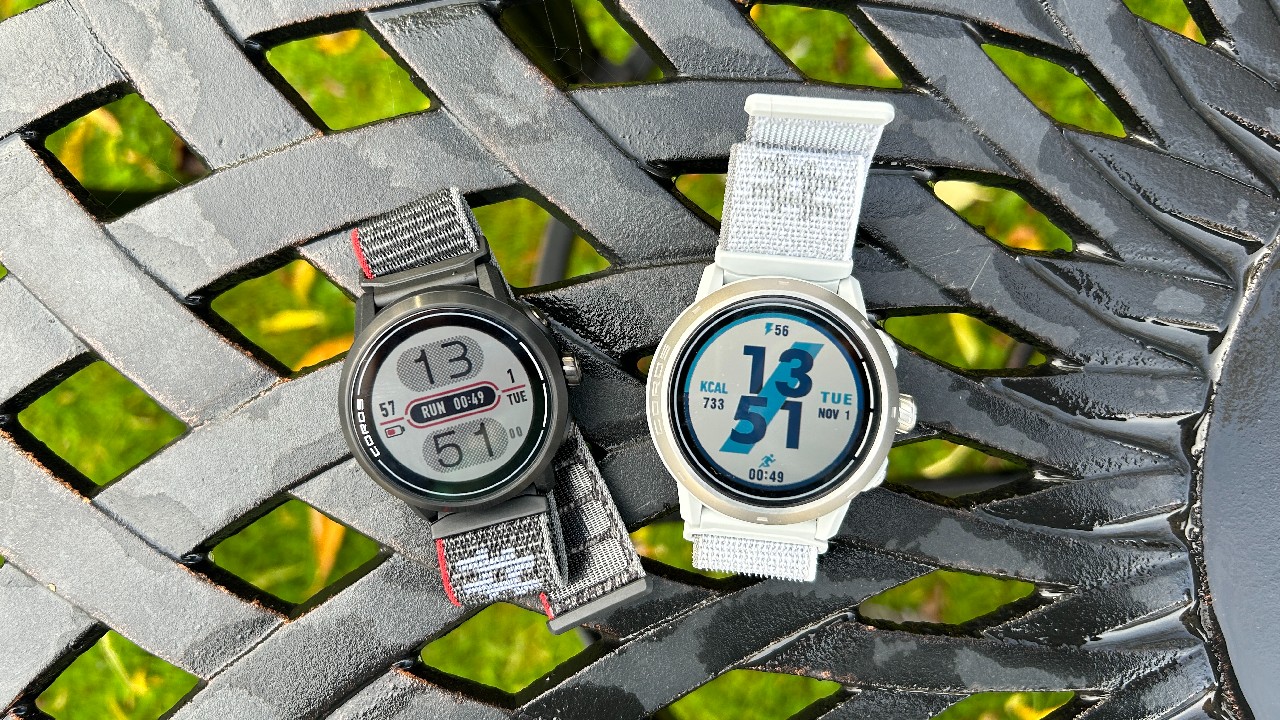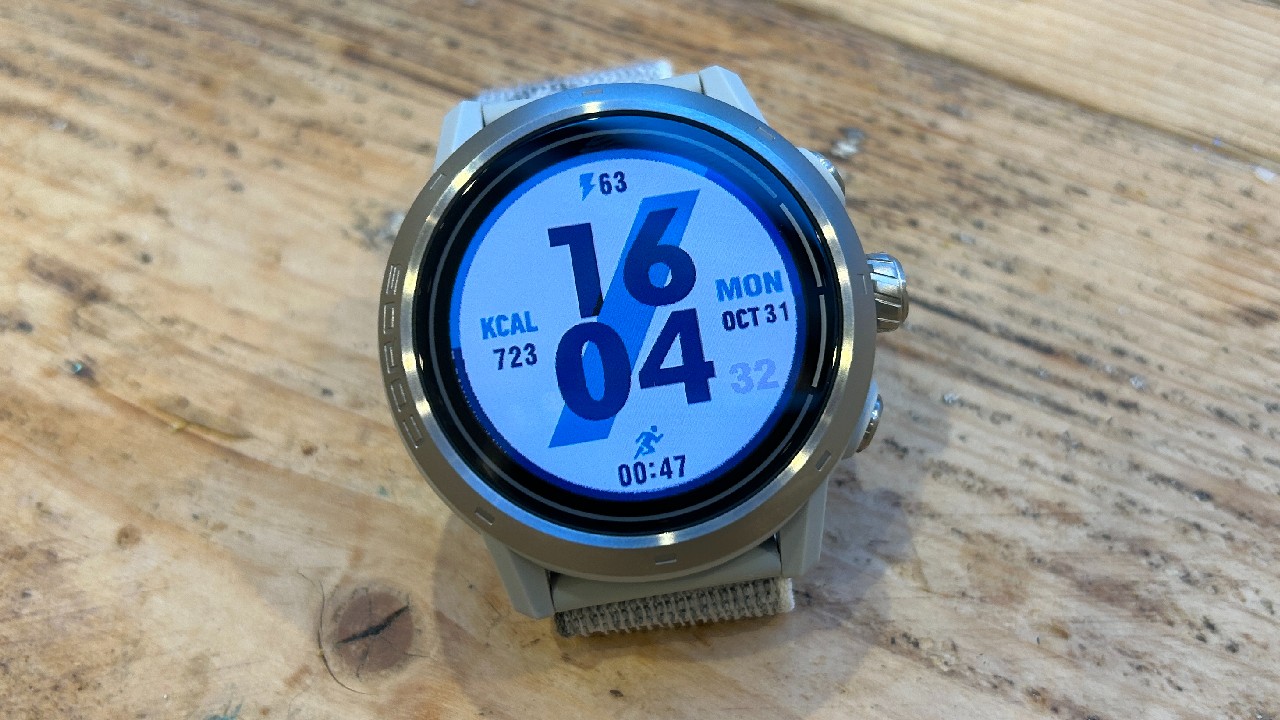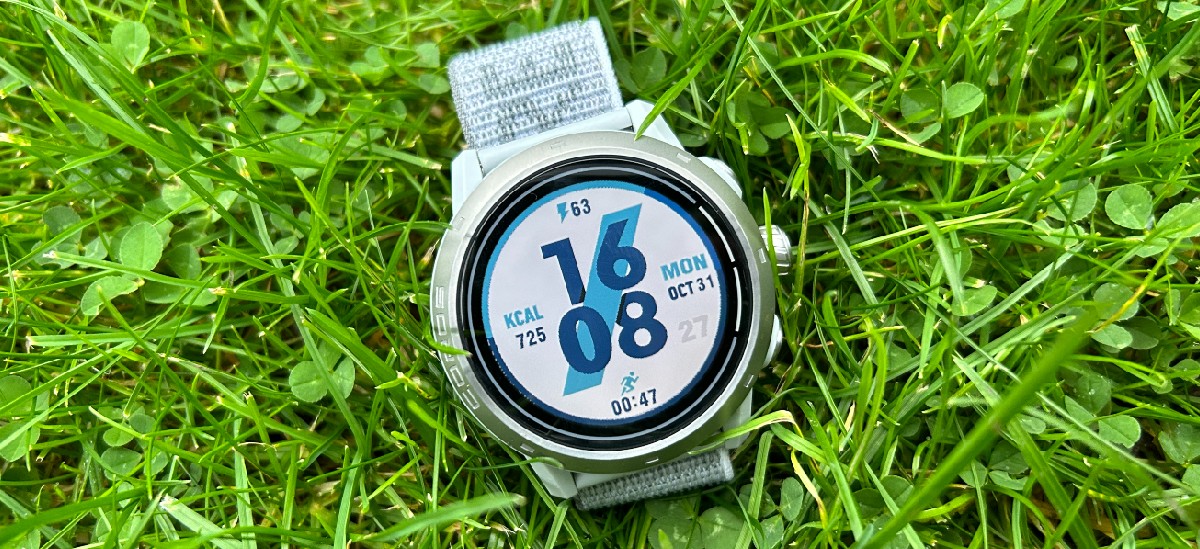Our Verdict
The Coros Apex 2 Pro is a rugged, attractive and very capable sports watch with excellent battery life. The Garmin Forerunner 955 is the same price and outperforms the Apex 2 Pro in several areas, but the hardier design and longer battery life of the Coros watch will appeal to adventurous athletes.
For
- Rugged, attractive design
- Maps
- Dual-band GPS
- Long battery life
Against
- Maps and music disappoint
- Not a huge upgrade on Apex 2
- Price rise
- No ANT+ connectivity
You can trust Coach
The Coros Apex Pro 2 offers all the key features of Coros’s flagship Vertix 2 watch in a smaller, less rugged frame and at a lower price. It sits between the Vertix 2 and the new Apex 2 in Coros’s range, and rivals the likes of Garmin Forerunner 955 and the Polar Vantage V2, which I count among the best running watches available.
It’s a very capable watch, but it’s hard to recommend the Apex 2 Pro in its current form over the Forerunner 955 at a similar price, since many of its features are not as well implemented.
Coros Apex 2 Pro: Price And Availability
The Coros Apex 2 Pro is available to pre-order from the Coros website beginning 3rd November 2022 and costs $499 in the US and £499 in the UK, a big jump in price on the original Apex Pro, which cost $399/£349. The Coros Apex 2 was also released on 3rd November and costs $399/£419. Stiff competition to the Apex 2 Pro also comes from the Garmin Forerunner 955, which is $499/£479.
- Coros Apex 2 Vs Coros Apex 2 Pro: Which Coros Sports Watch Should You Get?

Design
The Apex 2 Pro is a bit chunkier than the original Apex Pro, weighing 53g compared with 49g, and it has a larger screen (1.3in/33mm vs 1.2in/30.5mm). It has a sapphire glass touchscreen with a titanium alloy bezel and a stainless steel cover, with plastic used for the casing.
Rather than the five buttons favoured by Garmin and Polar, Coros uses a digital crown on its watches, which you can press and spin to navigate its menus. The Apex 2 Pro has the crown between two buttons; one is the backlight button and the other a back/lap button.
Although the waterproof rating on the Apex 2 Pro has dropped to 5ATM from 10ATM on the original Apex Pro, it is still more than tough enough for any activity you’re likely to throw at it, and works in temperatures ranging from -22°F to 122°F (-30°C to 50°C).
The Apex 2 Pro comes with Coros’s nylon band, which is comfortable to wear, dries surprisingly quickly after getting wet and helps to keep the weight of the watch down. In general the Apex 2 Pro is an attractive, comfortable watch to wear at all times, and an upgrade in looks on the all-plastic Coros Pace 2, which is the entry-level watch in the Coros range.
Sign up for workout ideas, training advice, reviews of the latest gear and more.
The antennae of the watch have been redesigned to improve GPS performance and now support dual-band GPS tracking for extra accuracy. The optical heart rate sensor has been redesigned as well, and the Apex 2 Pro can take heart rate variability tests, as well as tracking your blood oxygen saturation. Other sensors include a barometric altimeter and a compass.
How I Tested This Watch
I have had the Coros Apex 2 Pro for just over a week ahead of its launch, and have worn it for six runs and three indoors cycles. I have also been testing the Coros Apex 2, and have tested most of the Coros range extensively.

Sports Tracking
Aside from the addition of a multi-pitch climbing mode, the sports tracking on the Apex 2 Pro remains virtually identical to that on other Coros watches. It’s a comprehensive tracker for a wide range of sports, with detailed stats available for runners and triathletes in particular.
The watch measures running power from the wrist, but Coros is moving the focus away from power to its “effort pace” metric, which replaces “adjusted pace” on the watch. Effort pace takes incline into account, so it will be faster than your actual pace when running uphill, for example. This should mean you can use one metric to provide a consistent effort reading across a hilly run, as many runners do with power.
Coros also says that in the future it will be able to analyse data from your runs to make effort pace reflect the kind of runner you are, so if you are a strong uphill runner, this will be reflected in your personalised effort pace stats. It’s an interesting idea and, like power, has the potential to be a single stat you can use to judge your effort across a range of runs – but I’m still unconvinced that a majority of runners will move away from more established and easy-to-understand stats like pace and heart rate, or just running on feel.
There’s nothing to fault about the sports tracking available on the Apex 2 Pro, and it’s backed up by the detailed EvoLab training analysis on the watch and in the Coros app. All the stats you could want are available, and the watch is easy to use and clear to read in all conditions.
The only flaws I can think of are that you get essentially the same experience on the cheaper Apex 2 and Pace 2 watches, and that you can only connect Bluetooth sensors to the Apex 2 Pro, whereas you could also link ANT+ devices on the original Apex and Apex Pro.
GPS And Heart Rate Accuracy
Among sports watch brands, Coros led the charge towards dual-band GPS and all-satellite-system tracking by introducing it on the Vertix 2 watch, but since then the accuracy of the Garmin devices with this feature have set the standard. This remains the case with the Apex 2 Pro, which is a highly accurate GPS watch but tends to have a few more wobbles on the run than the Garmin Epix 2, and it also cuts corners at times.
These wobbles don’t usually add up to inaccurate stats overall, though, and the pacing stats were consistent in the runs I did with the watch. I didn’t find the multi-band option on the Apex 2 Pro a worthwhile upgrade in accuracy compared with the all-systems-on mode, though, and using dual-band tracking cuts the battery life significantly. Coros suggests the multi-band mode is mainly for climbing, but on other watches like the Garmin Epix 2 and Forerunner 955 I’ve seen the dual-band tracking improve the GPS performance on all types of runs.
The heart rate tracking has been accurate in the main. As with all optical heart rate monitors it can lag behind the readings of a chest strap when interval training, and sometimes the reading would be off for a minute or two during runs, so for long-term use I would link up a heart rate chest strap to feed more accurate data into Coros’s EvoLab training analysis. If you’re not too fussed about that analysis, you can get by using the optical sensor on the watch to judge your level of effort.
Battery Life
The battery life on Coros devices has always impressed, with all of its watches outperforming the other options in their price range. The same is true of the Coros Apex 2 Pro, which lasts 30 days in smartwatch mode and offers 75 hours of standard GPS tracking, which drops to 45 hours in all-systems-on mode and 25 hours in dual-band mode.
The battery performance while GPS tracking is great, but it's in between runs where Coros watches excel. Heart rate readings are taken every 10 seconds outside of activities as standard (you can turn real-time tracking on) and heart rate variability is read only on demand, rather than all night long, but even so it’s remarkable how little battery is used between activities compared with Garmin and Polar devices.
I’ve worn the Coros Apex 2 Pro for eight days and the battery life has dropped from full to 51%. Coros provides a handy breakdown of your usage in that time, so I can see I’ve done 3hr 35min of GPS activities, plus another 2hr 20min of indoor activities, and it estimates I have another 12 days of juice left, or 25 hours of GPS. I’d say those estimates are optimistic but the watch will easily clear the two-week hurdle.
Maps And Navigation
Coros introduced colour maps to its range for the first time with the Vertix 2, and they are now available on cheaper watches including both the Apex 2 and Apex 2 Pro (and Apex Pro). The maps do make following breadcrumb trails easier, but the navigation tools on the watches lag far behind the offering on Garmin devices with maps, including the Forerunner 955.
For one there are no turn-by-turn directions – all you get is an alert if you deviate from the trail. Although you do get an elevation chart during an activity with a route loaded, you don’t get the individual climb and descent analysis you get from Garmin’s ClimbPro feature. I also found the maps less clear than the ones on Garmin watches, and you can’t just set a map screen to show during activities – it only comes up in your data screens if you load a route.
Currently, the mapping tools on Coros are better than breadcrumb trails on a blank background but not that much better. I expect Coros to develop the mapping tools on its watches, but for now Garmin does mapping much better.
Smart Features
The music features on the Apex 2 Pro also fall a bit short, since it doesn’t link up to any streaming services – you have to drag and drop MP3 files across. For those who have eschewed streaming and stuck with having their own music library downloaded to their computer, this is vindication. For those who use streaming services and don’t own any files, it is not a feature you’re likely to use much. In comparison, Garmin watches with music can link with Spotify and other streaming services to sync playlists across to listen to offline. Coros says it hopes to link to streaming services in 2023.
Other than music storage there aren’t really any notable smart features on the Apex 2 Pro. It’s very much a sports watch, not a smart one. It will mirror phone notifications, but doesn’t even show a weather forecast on the watch, presumably to save battery.
Activity And Sleep Tracking
Sports are the focus of the Apex 2 Pro, but it will record your daily steps, floors climbed and active calories burned. It also tracks sleep and shows a graph of your sleep stages on the watch the following day.
You can also take heart rate variability readings on the watch, but this has to be done manually. The idea would be to do this each morning to see how stressed your body is, but the test requires you to sit and hold the watch for a minute, and it’s very easy to forget to do on busy mornings. Other brands will track your heart rate variability overnight and give you a rating of how recovered you are, or how ready you are to train that day every morning. This probably carries a high cost in battery life, and Coros has opted to focus on the latter, which is a fair decision, but the training readiness feature on the Garmin Forerunner 955 is excellent and another reason I’d choose that watch over the Apex 2 Pro.
Is The Coros Apex 2 Pro Worth It?
The Coros Apex 2 Pro nails the basics of tracking and training analysis, and lasts a long time on a charge. However, there are lots of features on the watch that don’t stand up that well compared with the competition from Garmin in particular, and the Forerunner 955 is a better all-round watch at this price. The Apex 2 Pro lasts longer and has a more attractive design with the titanium alloy bezel, but the Garmin Forerunner 955 is still a good-looking watch with a battery that lasts a week, plus it has better mapping, music and training readiness features.
While the Apex 2 Pro is a significant upgrade on the original Apex Pro, it’s a lot more expensive, and the Apex Pro is still a highly effective sports watch. The Apex 2 is also cheaper and while it doesn’t have multi-band tracking and has a smaller screen and shorter battery life, whether those upgrades are worth the extra $100/£80.

Nick Harris-Fry is a journalist who has been covering health and fitness since 2015. Nick is an avid runner, covering 70-110km a week, which gives him ample opportunity to test a wide range of running shoes and running gear. He is also the chief tester for fitness trackers and running watches, treadmills and exercise bikes, and workout headphones.

